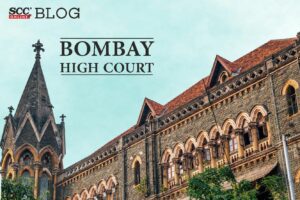Bombay High Court: The Division Bench of G.S. Patel and Gauri Godse, JJ. dismissed an appeal which was filed assailing an order dated 05-09-2005 by Single Judge who had upheld a labour court award that confirmed the termination of his services.
Appellant was a bus conductor with the Maharashtra State Road Transport Corporation Pune Division (“MSRTC”) and while he was on duty on 12-12-1995 the inspections squad found that he had wrongly punched the tickets. There was an excess amount of Rs. 24.90 in his possession. The charge-sheet was issued to him and after conducting an inquiry, his services were terminated. He filed a complaint under Maharashtra Recognition of Trade Unions and Prevention of Unfair Labour Practices Act 1971 (“MRTU and PULP Act 1971”). He ultimately withdrew this. He then again filed complaint under the same Act which also withdrawn. Then he raised an industrial dispute, and a reference came to be made to the Labour Court under Section 10(1) and 12 (5) read with Section 2A of the Industrial Disputes Act 1947. The Labour Court allowed both sides to lead evidence. An award was passed dismissing his reference. Consequently, the writ petition was filed assailing Labour Court’s award. The argument by the counsel of the petitioner was about the disproportionality of the punishment.
The Court remarked that, “As to the generality of the proposition that proportionality is crucial in any decision making process, there cannot be any doubt. But this does not mean that every infraction has to be allowed to be got away with just a slap on the wrist, as it was. When one assesses the doctrine of proportionality, one looks not only at the immediate cause inviting punishment but also at the entire context and, in a given case, a pattern or a history of conduct especially past conduct.”
The Court went on to explain in detail the reasoning given by the Labour Court and the Single Judge in the further petition. It was explained that the Single Judge had read the order of the Labour Court and noted that this was not a first or an isolated instance. In 1980, about fifteen
years earlier Sonawane was terminated because at that time he had failed to issue tickets to passenger after collecting fare. He was reinstated. Six years later in 1986 three increments were withheld because of absenteeism. In 1991, he was terminated because he was found to be reissuing tickets and it is at that time that a lenient view was taken reinstating him. In 1994, his annual increment was withheld for two months.
The Court agreed with the Single Judge’s reasons to not interfere with the order of the Labour Court.
“There is such a thing as too much leniency. The approach in this country of believing that when one works for government no action can ever be taken no matter how persistently one is found to be doing wrong is an approach that needs to now stop as fast as possible.”
The appeal was dismissed.
[Jaising Nivrutti Sonawane v. Maharashtra State Road Transport Corporation, 2022 SCC OnLine Bom 1570, decided on 21-07-2022]
Advocates who appeared in this case :
Mr RV Govilkar, with Mihir Govilkar & S Khan, Advocates, for the Appellant;
Mr GS Hegde, with PM Bhansali, Advocates, for the Respondent.
*Suchita Shukla, Editorial Assistant has reported this brief.

